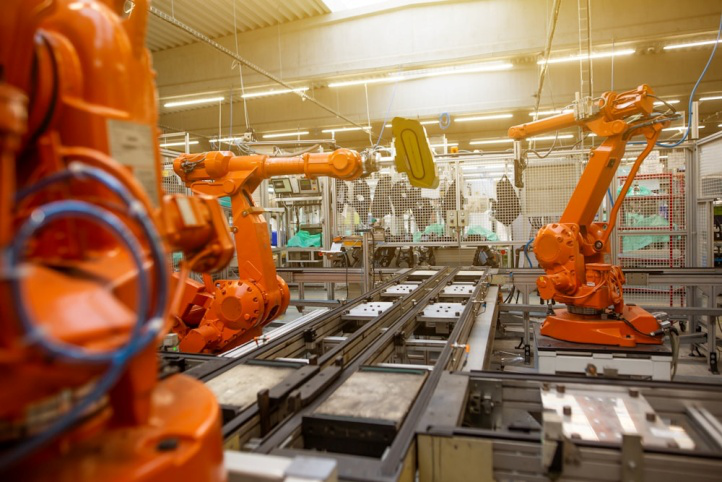The bulk material handling industry is on the brink of a technological revolution. As industries ranging from mining to agriculture seek more efficient, safer, and sustainable ways to move large quantities of materials, innovative technologies are poised to transform traditional practices. This article delves into emerging trends in bulk material handling technologies, exploring their potential to reshape the industry.
Continue reading to learn more about bulk material handling trends.
1. Automation and Robotics
Automation is a major trend in bulk material handling. Automated systems, including conveyor belts, stackers, reclaimers, and loaders, are becoming increasingly sophisticated. These systems can operate with minimal human intervention, improving efficiency and reducing labor costs.
Robotics plays a crucial role in this shift. Robotic arms and autonomous vehicles are being used to handle materials with precision, speed, and safety. This advancement leads to increased efficiency as automated systems can operate continuously, leading to higher throughput and reduced downtime.
Moreover, automation reduces the need for human workers in hazardous environments, minimizing the risk of accidents. Although the initial investment is high, the long-term savings from reduced labor and increased efficiency make automation a cost-effective solution.
2. Internet of Things (IoT) Integration
The integration of IoT in bulk material handling is another trend gaining momentum. IoT devices collect real-time data from various parts of the handling process, allowing for better monitoring, control, and optimization. This technology enables predictive maintenance as IoT sensors can detect signs of wear and tear in equipment, thus reducing unexpected downtime.
Enhanced tracking through real-time monitoring improves inventory management and reduces losses. IoT data analytics can also identify bottlenecks and inefficiencies, leading to optimized operations and overall enhanced efficiency.

1. Artificial Intelligence and Machine Learning
Artificial Intelligence (AI) and Machine Learning (ML) are transforming how bulk material handling systems operate. These technologies enable systems to learn from data, make decisions, and optimize processes without human intervention. AI algorithms can analyze vast amounts of data to optimize the flow of materials, reducing energy consumption and improving throughput.
Machine learning models can be trained to detect defects or inconsistencies in materials, ensuring higher quality standards. AI-powered systems can adapt to changes in material properties or external conditions, maintaining optimal performance and enhancing the overall efficiency of bulk material handling.
2. Advanced Conveyor Systems
Conveyor systems are the backbone of bulk material handling. Innovations in conveyor technology are making these systems more efficient and versatile. New designs and materials for conveyor belts are reducing energy consumption. For instance, lightweight materials and low-friction designs can significantly cut down power usage.
Modular conveyor systems offer flexibility, allowing for easy reconfiguration and scalability to adapt to changing needs and expanding operations. Additionally, integrating sensors and AI creates smart conveyor systems that monitor their performance, detect issues, and optimize their operation in real-time.
3. Sustainable Practices and Green Technologies
Sustainability is a growing concern across all industries, and bulk material handling is no exception. Companies are seeking ways to reduce their environmental footprint. The use of biodegradable and recyclable materials for packaging and handling can reduce waste significantly.
Innovations in equipment design are focusing on reducing energy consumption and emissions, with electric and hybrid vehicles replacing diesel-powered ones in some operations. Embracing the principles of the circular economy, companies are focusing on recycling and reusing materials, reducing the need for new raw materials, and promoting more sustainable practices.

1. Virtual and Augmented Reality
Virtual Reality (VR) and Augmented Reality (AR) are emerging as powerful tools in bulk material handling. VR can be used to train workers in a safe and controlled environment, improving their skills and reducing the risk of accidents. AR can assist technicians by overlaying digital information onto the physical world, guiding them through complex maintenance tasks and troubleshooting.
Additionally, VR and AR can enable remote monitoring and control of equipment, allowing experts to assist on-site personnel from afar, thus enhancing operational efficiency and safety.
2. Big Data and Analytics
The bulk material handling industry generates vast amounts of data. Big Data and analytics technologies are crucial for making sense of this data and driving informed decision-making.
Advanced analytics can uncover patterns and insights that lead to more efficient operations. Data analytics can optimize the entire supply chain, from sourcing materials to delivering finished products. Predictive analytics can help identify and mitigate risks, such as equipment failure or supply chain disruptions, ensuring smoother and more reliable operations.
3. Blockchain Technology
Blockchain technology is making its way into bulk material handling, offering enhanced transparency and security in transactions and supply chain management. Blockchain can provide a tamper-proof record of the origin, movement, and handling of materials, ensuring transparency and accountability.
Smart contracts, which are self-executing contracts, can automate transactions and agreements, reducing the need for intermediaries and speeding up processes. The decentralized nature of blockchain can enhance the security of data and transactions, reducing the risk of fraud and improving trust among stakeholders.

The future of bulk material handling is being shaped by a convergence of advanced technologies. Automation and robotics, IoT integration, AI and machine learning, advanced conveyor systems, sustainable practices, VR and AR, big data analytics, and blockchain are all set to transform the industry.
These innovations promise to enhance efficiency, improve safety, reduce costs, and promote sustainability. As these technologies continue to evolve, the bulk material handling industry must adapt to stay competitive and meet the growing demands of a rapidly changing world. Embracing these trends will not only revolutionize current practices but also pave the way for a more efficient and sustainable future.
Our team at Orbetron provides customized bulk feeding and liquid mix systems to address your manufacturing challenges. From extrusion technology to bulk solids metering equipment, our machines can handle materials in an ideal way, resulting in dependable performance.
Looking for the ideal bulk feeding and liquid mix systems? Get in touch with us to learn more about how our bulk-feeding solutions can elevate your production efficiency and quality.

